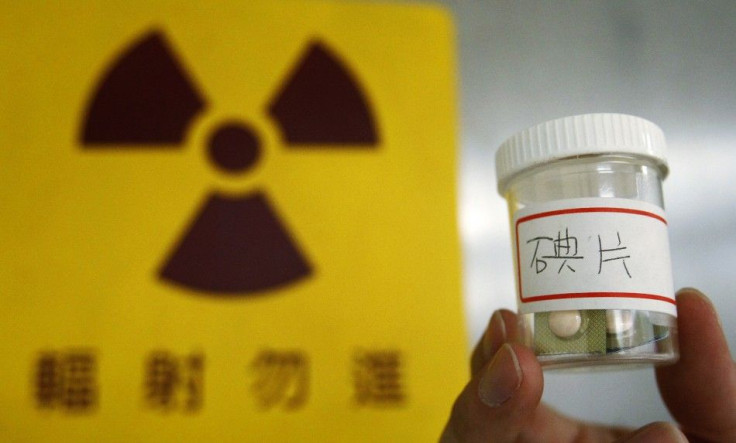Japan radiation panic grips U.S. West Coast

Panic gripped the U.S. West Coast despite a fraction of media's active campaign to quell the fears of harmful radiation from earthquake-torn Japan blowing in the wind. Turning a deaf ear to expert assurances that that the radioactive substances expected to reach the American Coast is not dangerous, people scrambled to hoard an anti-radiation drug.
The first response to the reports on the radiation threat came in from US Nuclear Regulatory Commission on Thursday.
All the available information continues to indicate Hawaii, Alaska, the US Territories and the US West Coast are not expected to experience any harmful levels of radioactivity, the NRC said.
The United Nations forecast of the movement of the radioactive plume coming from Japan's crippled Fukushima reactors indicating that it would hit Southern California late Friday, set off panic response. People rushed to buy potassium iodide pills.
The drug is used to help prevent radioactive iodine from causing thyroid cancer.
Experts even cautioned people against wasting any time or energy into buying the pills as the drug would provide protection against radiation. There's a lot of mythology about the use of potassium iodide, a pediatrician and disaster preparedness specialist at Columbia University told AP.
The chairman of the Nuclear Regulatory Commission also said there is no need for the U.S. public to be taking the drug. You just aren't going to have any radiological material that, by the time it traveled those large distances, could present any risk to the American public.
A similar panic response was sparked off in China, where people began buying salt based on the belief that the iodine in it can stop radiation sickness. National Development and Reform Commission (NDRC), the country's economic policy agency, also launched a campaign to put an end to the panic buying.
In recent days, some areas have been affected by rumors that have sparked intensive buying of salt, and some lawless merchants have leapt at the opportunity to raise prices, NDRC said in a statement, cautioning, Don't believe rumors, don't spread rumors, and don't panic buy.
Similar to the assurances issued to general population just miles away from the crippled nuclear plant, several experts have asserted that the levels are well within the safe range to cause any major health damage.
There is no reason to be nervous. There is no reason to have concern. Even in the worst-case scenario (in Japan), there is no threat to public health in California, Mike Dayton, acting secretary of California's Emergency Management Agency is quoted as saying in the San Franciso Chronicle.
Meanwhile, even as California's Emergency Management Agency confirmed Thursday that California could detect heightened radiation as early as Friday, California Department of Public Health interim Director Howard Backer told the media, We do not anticipate any amounts of radiation that will cause any health effects.
The fears of the commoners exaggerate the reality of the whole scenario. Facts state that radiation is leaking in small amounts near the surface and it would take a meltdown to cause the effects that the population is fearing.
CNN, one among the media outlets that is busy dishing out the facts on the radiation threat, also assuaged concerns regarding traveling and food contamination.
Although passengers on airplanes coming from Japan could carry small amounts of radiation, Dr. Otis Brawley, chief medical officer for the American Cancer Society told CNN that those people are being screened before departure and on arrival.
Also assuring that people need not worry about contamination of Pacific fish and seafood, Brawley is quoted as saying, If it were to happen, there's going to be checks and balances to make sure that fish is safe and is not radioactive, he said. It's very likely that this will not happen. I can't overstress that.
© Copyright IBTimes 2024. All rights reserved.





















